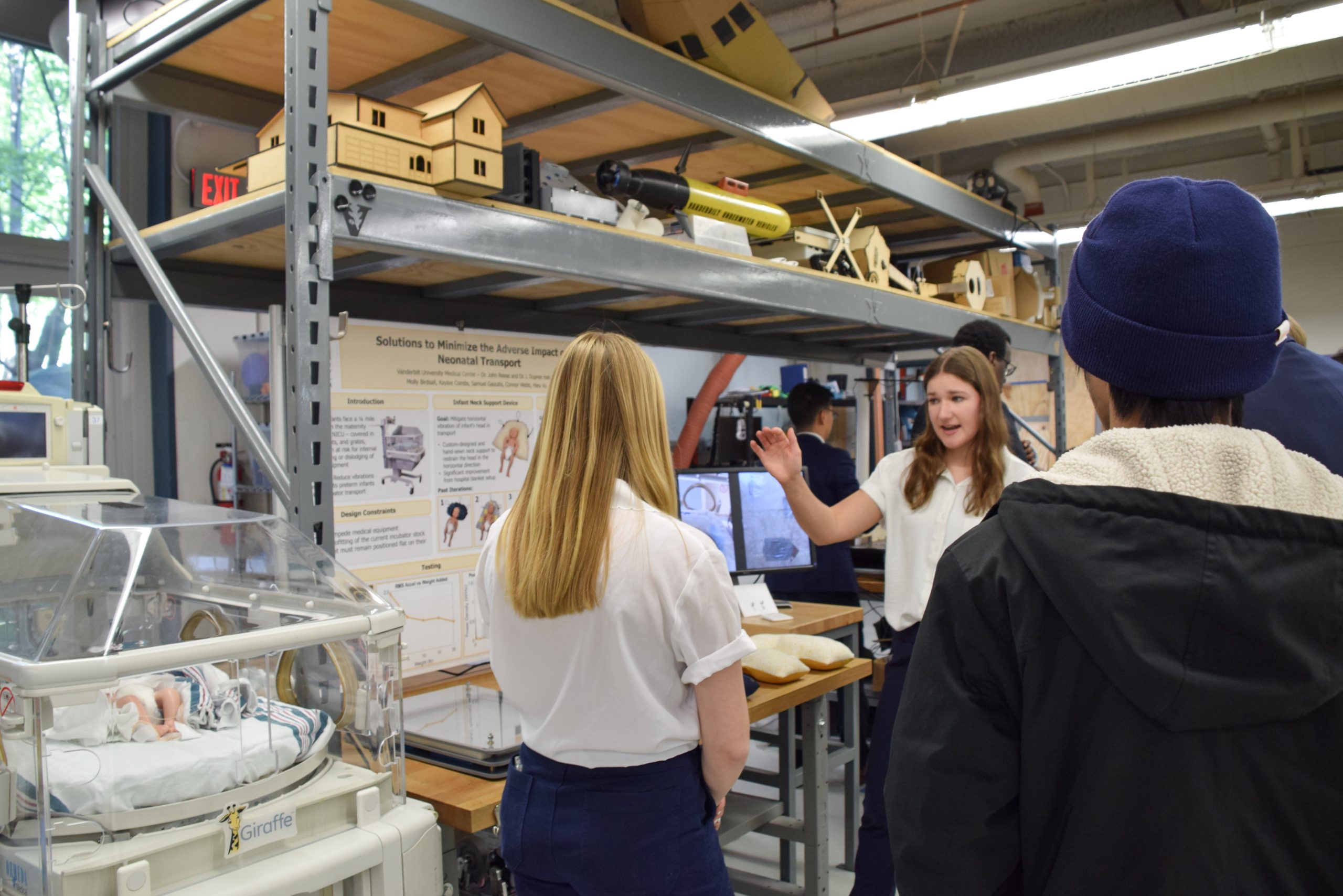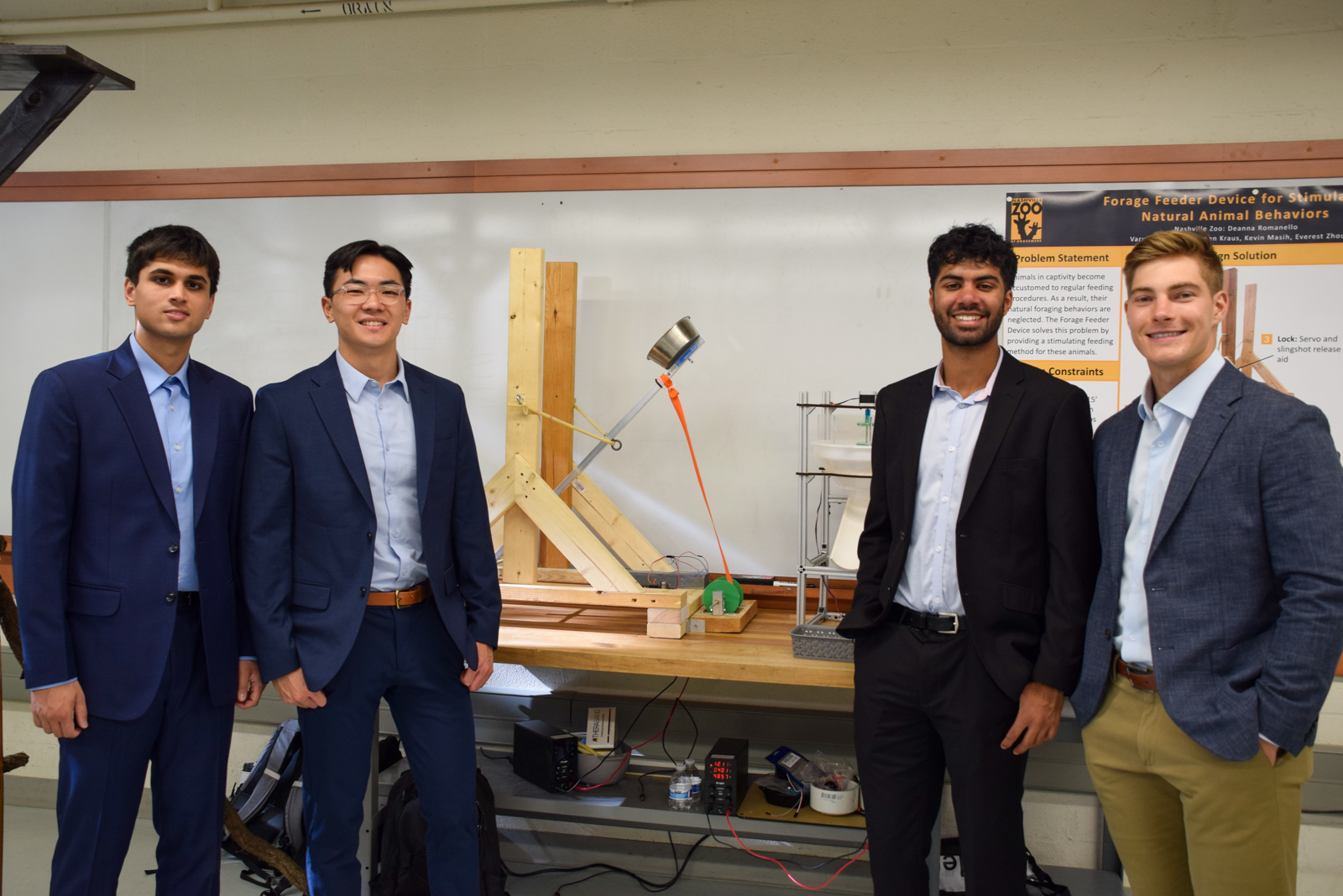2024 Design Day Projects
2023 Design Day Projects
Design Day Project Archive
Each year, the School of Engineering publishes a catalog of projects presented at Design Day.
Here are electronic versions of previous year catalogs.

Spotlight: Our 2024 Design Day
From zoos to space, engineering seniors demo devices and apps to solve clients’ problems
What if a manual wheelchair could be turned into a powered wheelchair by adding a bicycle-style wheel attachment with steering and braking control? A team of biomedical engineering seniors designed an accessory to an existing chair that currently limits steering to traditional hand rim turning. Their accessory streamlines both steering and braking.
See this project and 47 more at the Vanderbilt School of Engineering’s Design Day 2024. Seniors in six departments have spent the 2023-2024 academic year on capstone projects to solve sponsors’ problems. The annual design celebration is in Featheringill Hall Monday, April 22, from 5-7 p.m. and it is open to the public. A Design Day catalog features project descriptions.
The Nashville Zoo is a perennial sponsor of design projects. This year, mechanical engineering teams designed enrichment devices for animals. One is a forage feeding device to stimulate the natural behaviors of Sumatran tigers and Andean bears. A launching device uses a catapult-like throwing method to scatter food 10-15 feet away. Another mechanical engineering team designed a climbing structure for ring-tailed lemurs. Steps, grapevine ropes, mesh climbing, feeding and jumping spots and sunbathing platforms offer lemurs ways to engage in their natural behaviors.
Biomedical engineering teams have tackled issues of ICU alarm fatigue, a protective carrier insert for specimen transport, and an adhesive wearable device for blood clot detection. A chemical engineering team optimized clinical mixing of orthopedic bone cement. A team in electrical and computer engineering designed a coaxial drone for planetary landings. The drone is an integral part of a Vanderbilt rocket that will compete in the 2024 NASA University Student Launch Initiative.
“Design courses provide students with experience working on real-world projects that involve design constraints, budgets, reviews and deadlines. Students learned about professionalism, teamwork, entrepreneurship, and resilience,” said Thomas Withrow, assistant dean for design
and associate professor of the practice of mechanical engineering. “Our design events have always been a celebration of all the lessons learned during their engineering educations.”
Design projects were completed in partnership with a multitude of companies and institutions, including Amazon Robotics, Nissan North America, NASA Marshall Space Flight Center, Barge Design Solutions, Sterling Ranch Development Company, Booz Allen Hamilton, Tennessee Department of Environment and Conservation, and many more. Multiple Vanderbilt and Vanderbilt University Medical Center departments sponsored projects and provided advisers as well.
Several design prizes are awarded at the end of the spring semester.
Other projects include:
- Water network design software for the Sterling Ranch community in Colorado
- Automated installation of speakers on Nissan Pathfinder vehicles
- A low-cost autonomous unmanned aerial vehicle
- Structural design to expand housing for homeless individuals while they recover from hospitalization
- A grocery shopping tool for senior adults
- A dual jet bridge for boarding to reduce gate time at airports

